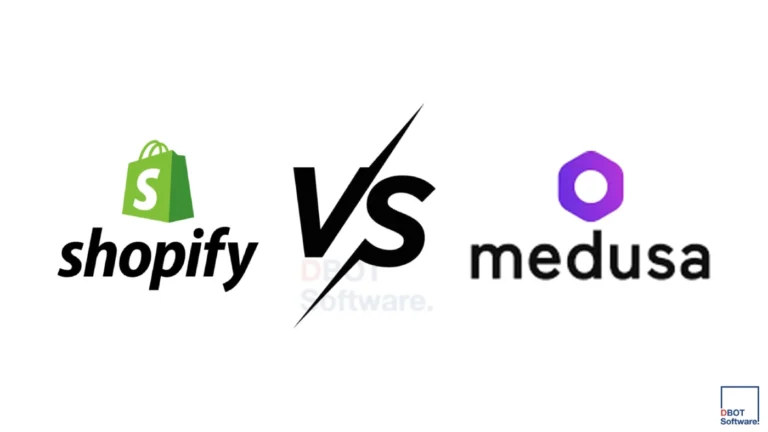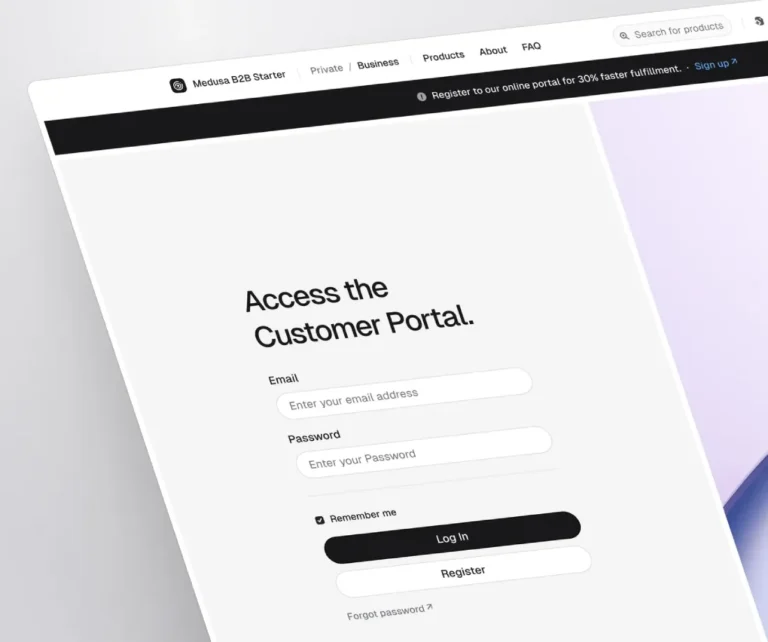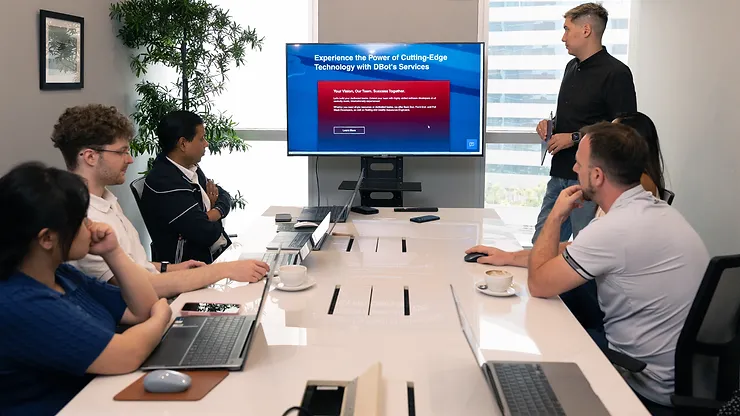What is the Definition of Turnkey Software?
In the simplest terms, turnkey software refers to ready-to-use solutions that work immediately upon deployment with minimal configuration required. The term “turnkey” originates from the concept of simply turning a key to start an engine or open a door, highlighting how these solutions are designed to function right out of the box.
According to technical definitions, turnkey software systems are pre-built platforms designed to address specific industry needs while requiring minimal customization to become operational. For businesses seeking efficient digital transformation in 2025, these complete end-to-end systems handle everything from planning to launch, significantly reducing development complexity and accelerating time-to-market.
Turnkey Project vs. Custom Development: Understanding the Difference
A turnkey project in software development encompasses the entire process of creating, implementing, and delivering a fully operational system ready for immediate use. Unlike conventional development approaches where clients manage multiple vendors or stages, turnkey projects assign complete responsibility to a single provider who handles all aspects from requirement analysis to final deployment.
The key differences between turnkey and custom development include:
| Turnkey Solutions | Custom Development |
|---|---|
| Pre-built with standard features | Built from scratch for specific needs |
| Rapid deployment (2-8 weeks) | Longer timelines (6-12+ months) |
| Lower initial cost ($15,000-$50,000) | Higher investment (often $100,000+) |
| Limited customization options | Complete flexibility and control |
| Standardized processes | Tailored to unique workflows |
| Predictable maintenance costs | Variable ongoing development expenses |
What Makes a Software Solution Truly “Turnkey”?
For a platform to be classified as a genuine turnkey solution, it must meet several critical technical requirements that distinguish it from other software offerings:
Essential Elements of Turnkey Systems
- Seamless integration capabilities through standardized APIs and data protocols that connect with existing business systems
- Built-in security frameworks including encryption and compliance features to protect sensitive information
- Automated update mechanisms ensuring the software evolves with industry requirements
- Comprehensive documentation and support enabling quick issue resolution
- Mobile-responsive design providing access across various devices
- Scalable architecture accommodating business growth without major modifications
- Pre-configured reporting tools delivering immediate insights into performance metrics
Real-world example: When a retail business implements a turnkey point-of-sale system, staff can begin processing transactions within hours while managers simultaneously access real-time analytics dashboards, all without complex technical setup procedures.
Types of Turnkey Software Applications
The market offers various turnkey solutions designed for specific business functions and industries:
Turnkey Business Applications
- Enterprise Resource Planning (ERP) systems that integrate core business processes
- Customer Relationship Management (CRM) platforms managing customer interactions
- Human Resources Management Systems (HRMS) streamlining employee administration
- E-commerce platforms providing complete online selling capabilities
- Project management solutions coordinating team activities and resources
- Accounting and financial management tools automating financial operations
Turnkey Mobile Apps
A turnkey app brings comprehensive software functionality to mobile platforms. These applications are fully equipped with core features, database structures, and intuitive interfaces tailored for specific industries or purposes.
For example, a restaurant chain can implement a turnkey food ordering app within days, complete with payment processing, order tracking, and delivery management capabilities. All without custom development.
Business Benefits of Turnkey Software Solutions
Implementing ready-to-deploy software delivers measurable returns across several business dimensions:
Operational Advantages
- Cost efficiency: Organizations report up to 30% reduction in operational expenses through streamlined processes
- Accelerated implementation: Deployment measured in weeks rather than months
- Reduced technical debt: Professional architecture minimizes future maintenance issues
- Standardized workflows: Consistent processes improve efficiency and quality control
- Lower training requirements: Intuitive interfaces reduce learning curves for staff
Strategic Benefits
- Faster market entry: Businesses can launch new services or products more quickly
- Data-driven decisions: Pre-configured analytics transform raw data into actionable insights
- Improved resource allocation: Staff focus on strategic initiatives rather than technical implementation
- Predictable costs: Subscription models provide clear budgeting visibility
Case study: A manufacturing company leveraging turnkey ERP software experienced a 25% improvement in inventory management within just three months of deployment, demonstrating the rapid return on investment these solutions can deliver.
Turnkey Software Development Process
A successful turnkey implementation follows a structured approach:
Key Implementation Phases
- Needs assessment and requirements gathering (1-2 weeks)
- Defining business objectives and success metrics
- Identifying essential workflows and integrations
- Establishing technical requirements and constraints
- Data migration planning (1-3 weeks)
- Mapping existing data structures to new system requirements
- Cleansing and preparing data for transfer
- Creating validation protocols to ensure information integrity
- System configuration and customization (1-2 weeks)
- Adjusting settings to match specific business needs
- Implementing branding elements and visual customization
- Setting up user roles and permission structures
- User acceptance testing (1 week)
- Validating core functionality against requirements
- Identifying necessary adjustments or enhancements
- Confirming system performance under expected load
- Training and knowledge transfer (1-2 weeks)
- Conducting role-specific training sessions
- Developing internal documentation and guides
- Establishing support protocols for ongoing assistance
- Go-live and optimization (ongoing)
- Monitoring system performance during initial operation
- Collecting user feedback for potential refinements
- Implementing enhancements based on operational data
Real implementation example: A retail chain successfully trained 200 employees across multiple locations using a phased turnkey system deployment over just three weeks, maintaining business operations throughout the transition.
Examples of Turnkey Software Solutions
When discussing what is a turnkey software example, several leading platforms demonstrate the concept’s practical application:
- Salesforce CRM: A prime example enabling businesses to manage customer relationships without complex setup, offering built-in tools for sales tracking, lead management, and customer support.
- QuickBooks: Provides comprehensive accounting capabilities for small businesses, allowing users to process invoices, track expenses, and generate financial reports within hours of installation.
- SAP Business One: Utilized by manufacturing companies to manage everything from inventory to production planning through a unified system.
- Shopify: An e-commerce turnkey solution that enables businesses to launch online stores with integrated payment processing, inventory management, and marketing tools.
- Microsoft Dynamics 365: A suite of business applications covering everything from sales to operations, delivered as ready-to-implement modules.
These examples illustrate how turnkey software delivers immediate business value through pre-configured, industry-specific features without requiring extensive development resources.
Key Features of Modern Turnkey Platforms in 2025
Today’s advanced turnkey solutions incorporate cutting-edge technologies that differentiate them from previous generations:
Advanced Technical Capabilities
- Cloud-native architectures enabling real-time collaboration across global teams
- Artificial intelligence integration automating complex workflows and predicting user needs
- Containerized microservices allowing independent scaling of specific functions
- Advanced analytics dashboards transforming data into visual insights
- Low-code customization tools empowering business users to adapt systems
- Robust API ecosystems facilitating connections with specialized tools
- Enhanced security protocols protecting against evolving cyber threats
Illustrative example: A financial services firm deployed a turnkey trading platform that automatically adjusts its interface based on each trader’s preferences and common actions, demonstrating how modern systems adapt to user behavior patterns for improved efficiency.
Choosing Between Turnkey and Custom Solutions
Evaluating software options requires businesses to consider several critical factors before making the optimal choice:
Ideal Scenarios for Turnkey Software
- Standard business processes that align with industry practices
- Time-sensitive projects requiring rapid implementation
- Fixed budgets demanding predictable, controlled costs
- Limited availability of in-house technical talent
- Core functions that don’t provide competitive differentiation
Best Cases for Custom Development
- Unique proprietary workflows specific to your organization
- Complex regulatory compliance requirements in specialized industries
- Competitive advantage dependent on distinctive software capabilities
- Strategic focus on long-term flexibility over immediate deployment
- Gap analysis showing inadequate functionality in existing solutions
Decision framework: A mid-sized manufacturing company saved 40% on development costs by choosing a ready-to-deploy ERP system for standard operations, while a specialized healthcare provider required tailored security protocols, making custom development the optimal choice despite higher upfront investment.
Frequently Asked Questions About Turnkey Software
A typical turnkey project deployment takes between 2 to 8 weeks depending on system complexity and business requirements. This timeline is significantly faster than custom software development, which often requires 6-12 months or more. Factors affecting implementation speed include data migration volume, training requirements, and the number of users needing system access.
Turnkey software solutions generally range from $15,000 to $50,000 for basic packages, with enterprise implementations potentially reaching $100,000+. This pricing structure is considerably more budget-friendly than building custom systems from scratch, which can easily exceed $100,000. Most vendors offer tiered subscription models based on user numbers, selected features, and support levels.
Modern turnkey platforms feature automated security management through regular system updates and vulnerability patches. The software provider typically handles all maintenance tasks, including:
– Real-time threat monitoring
– Automatic security fixes deployment
– Compliance updates for regulatory changes
– System backup and disaster recovery processes
– Access control and authentication management
This managed approach ensures businesses remain protected against emerging cybersecurity threats without requiring dedicated internal resources.
A turnkey mobile application provides businesses with instant market presence through pre-built, ready-to-launch solutions. These apps minimize development risks while delivering professional-grade functionality immediately.
Unlike traditional development that requires extensive coding, turnkey apps come equipped with proven features and user-friendly interfaces. Businesses can deploy complete platforms within days instead of spending months building from scratch.
The solutions incorporate industry best practices and security standards, from payment processing to user authentication, while offering customization options to match your brand identity.
Customer Relationship Management (CRM) platforms stand out as prime examples of effective turnkey solutions in action. Modern CRMs enable businesses to track sales pipelines, manage customer interactions, and analyze performance metrics straight out of the box.
Popular accounting software packages demonstrate another practical application. These systems come pre-configured with standard chart of accounts, tax calculations, and financial reporting tools that match industry requirements.
Conclusion: Is Turnkey Software Right for Your Business?
Turnkey software solutions provide an efficient path to digital transformation by offering pre-built functionality tailored to specific industry needs. These platforms enable rapid implementation measured in weeks rather than months, making them particularly attractive for businesses seeking quick deployment.
When evaluating turnkey solutions, organizations must weigh their immediate operational requirements against long-term strategic goals. While turnkey platforms excel in standardized environments with limited technical resources, offering predictable costs and swift implementation, businesses with specialized workflows may find custom development more suitable despite higher upfront investment.
The optimal choice depends on your organization’s specific context, timeline, resources, and growth trajectory as you plan for success in 2025 and beyond.






